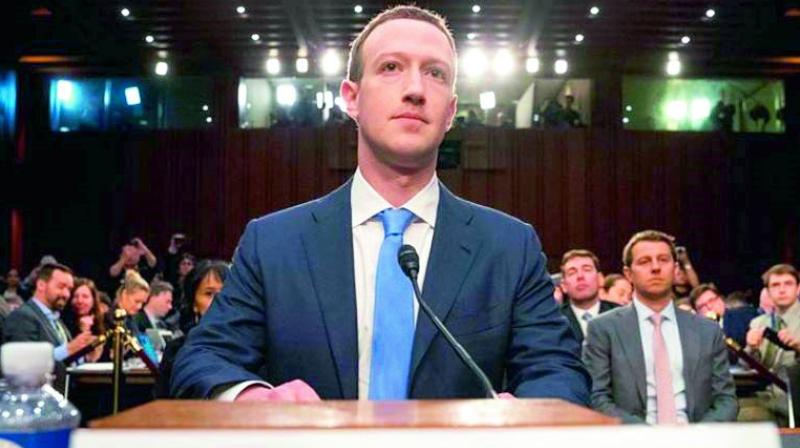The great tech divide
Technology and social media have clearly demarcated generations of users, with reactions ranging from the comic to outright frustrating.

While traditionally, it is the elders who give life lessons to younger people, technology has brought about a role-reversal of sorts. Call it techsplaining or wanting to keep the elderly updated with technology, the online world is filled with memes of how the youth are often frustrated while trying to explain technology to seniors. With many older adults unfamiliar with the use of computers and younger ones literally born with touch screen devices, the skill sets are radically different.
So it comes as no surprise that many youngsters who watched Facebook founder Mark Zuckerberg give his testimony to members of the US Congress could relate to him, especially since some of his testimony sounded a lot like providing technical support to our elders or relatives at home.
Easy to use, hard to explain
Senator Patrick Leahy actually brought along a poster on which his office had printed out images of various Facebook pages to ask whether they were Russian propaganda groups while another Senator Nelson (D-FL) asked, “I’m communicating with my friends on Facebook, and indicate that I love a certain kind of chocolate. And all of a sudden, I start receiving advertisements for chocolate. What if I don’t want to receive those commercial advertisements?”
“The position in which Zuckerberg finds himself in is something that most youngsters have endured. It’s tough to explain the data scandal to elders at home, especially when it takes a lot of time and patience to tell them over the phone how to connect to the Internet. But then, I want my family to be on social media, as most of the activities are shared on the platform and they get to see pictures of our family vacations and other such memories,” says 23-year-old techie Abhishek Bharti.
Back to the basics
Some of the common questions in the minds of senior citizens are — “Why should I join Twitter/social media?” or “Is it free?” Just like Senator Orrin Hatch wondered how Zuckerberg could sustain a business model in which users don’t pay for service. These fundamental questions indicate quite clearly that there is a ‘generation gap’ between people who grew up with social media and those who didn’t. While likes and comments are of prime importance to the younger generation, it really doesn’t matter to the seniors.
A father of two young women, 52-year-old Valluri Ram Rao — who is Chief Technology Officer at startup Einsite says, “About eight years ago, when my teenager opened her Facebook account, I was furious and did not have a delete option. Had the same thing happened today, I wouldn’t have panicked. People evolve. Most of the reactions on social media are not normal for people who did not grow up in the Facebook days. It is unnatural for me to find a friend on Facebook, while my daughter can easily make such friends. The younger generation does not want to stay aloof and cannot resist connectivity.”
He adds, “Every kid on the block knows that Facebook stores their data. Whether they consent to Facebook sharing their data or not is a psychological thing.” Further, he says that knowledge about servers and software is immaterial, but it is imperative to understand the business model of Facebook and other apps.
While an ideal scenario gives a social media user complete privacy, people are now demanding at least partial privacy, where data can be shared only with friends. “Elders at home are always excited to learn new technology, but don’t understand it. It is frustrating that they don’t explore it on their own, but continue to ask questions. For my parents, it is about staying touch with loved ones like grandchildren or children. They don’t enjoy likes or comments like we do. They still long for one-on-one contact as they don’t feel the warmth in online connections,” says 30-year old Balaji Rolla.
A tech gap
“Our youngsters are a tech generation. While technology makes life easier, youngsters must not forget that it’s only there to save time so they can focus on human relations. The human race needs to go forward using technology and not the other way round,” says 56-year-old Padma Sarma Mukkavilli.
While the constant innovation in technology keeps the younger generations engaged, it can lead to the opposite situation for the elderly. It is all too common to find stressed-out mothers trying to figure out the Wi-Fi password or dads learning how to use emojis while unsympathetic youngsters lose their patience and end up screaming while techsplaining.
Well, like it or not, technology is the new way of life, and one that is here to stay, even if each generation is going to embrace it differently.

